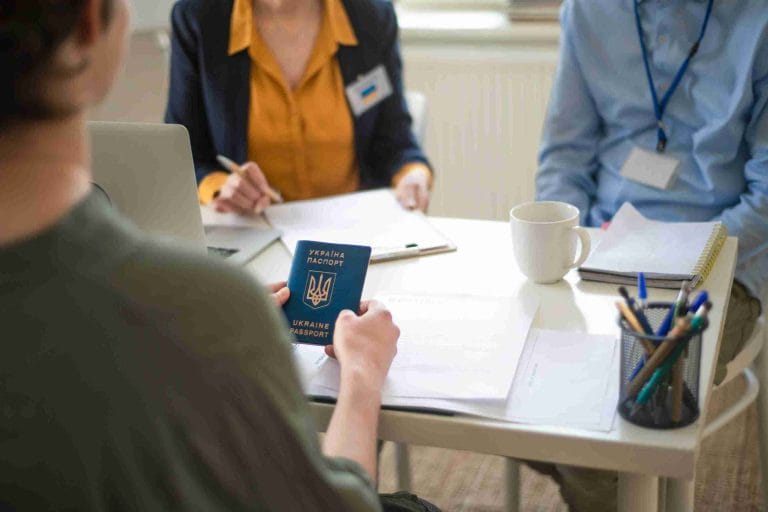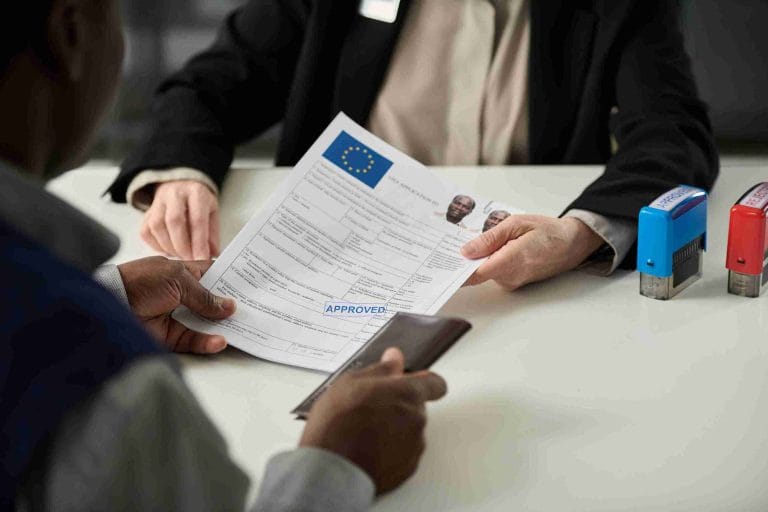Do I need a visa to enter the UK?
Depending on your nationality and reason for travel, you may need to apply for a visa before entering the UK.
There are various types of UK visas, each with specific eligibility requirements. In some cases, you may also need a UK-based sponsor to support your application.
You will be required to submit a detailed portfolio of supporting documents to prove you meet the criteria for your chosen visa.
To find out if you need a visa and how to apply, speak to our team of professional immigration lawyers today on +44 (0)161 839 7396. We’re here to help you every step of the way.
Understanding the UK Visa System
The UK immigration system classifies visas based on purpose, duration, and applicant eligibility. Choosing the correct visa category is the first and most important step in a successful application. At Salam Immigration, we help you select the right visa type, prepare your documents, and manage every stage of the process.
UK Visa Categories We Support
1. Work Visas
2. Student Visas
3. Business & Investor Visas
4. Family Visas
5. Visitor Visas
Need help deciding the right category? Contact us for an initial assessment.
Get in touch with Salam Immigration today for a seamless transition to the UK!
UK Visa Application Requirements
Each visa category has specific requirements. However, most applicants must provide:
At Salam Immigration, we ensure every document is complete, compliant, and cross-checked before submission.
Need help fulfilling requirements? Contact ust.
Step-by-Step UK Visa Application Process
We manage each stage of the visa application process with clarity and precision:
Step 1: Eligibility Assessment
We determine which visa category best fits your background, goals, and circumstances.
Step 2: Application Preparation
Our team helps you complete the correct visa form with zero errors and prepares a legal submission tailored to your case.
Step 3: Fee Payment
We advise on the appropriate fee structure and Immigration Health Surcharge (IHS), ensuring full transparency.
Step 4: Biometrics Appointment
You’ll attend a UK Visa Application Centre (VAC) to provide fingerprints, a photograph, and supporting documents.
Step 5: Document Submission
We upload or compile all required documents, formatted to UKVI standards, including translations where necessary.
Step 6: Interview (if applicable)
Some applicants may be asked to attend an interview. We help you prepare and understand what to expect.
Step 7: Decision & Outcome
We monitor your application status and advise you once a decision is issued.
Learn more about UK Visa Types and their process.
Common Reasons for Visa Refusals – And How We Prevent Them
Each year, thousands of visa applications are refused due to avoidable oversights — most of which could have been prevented with the right legal guidance. At Salam Immigration, we help clients avoid these pitfalls by offering comprehensive support throughout the application process. From gathering the right documents to ensuring legal compliance, our approach is proactive, meticulous, and tailored to your specific visa route.
Here’s a closer look at the most common reasons for UK visa refusals — and how our team helps you avoid them:
Incomplete or Inaccurate Application Forms
Even minor errors on your visa application — such as incorrect dates, missing fields, or mismatched information — can lead to refusal. Our team checks every detail and cross-references your documents to ensure full consistency and accuracy before submission.
Insufficient Financial Evidence
Whether you’re applying for a visitor, spouse, or student visa, you must show that you can financially support yourself without accessing public funds. We help you present clear, well-structured financial documentation that meets UKVI standards — including bank statements, payslips, and sponsor declarations where applicable.
Failing English Language Test Requirements
Several visa categories require proof of English proficiency via an approved SELT (Secure English Language Test) or degree taught in English. We guide you on choosing the correct test, interpreting your results, and gathering the proper certification to satisfy Home Office requirements.
Weak or Invalid Sponsorship Letters
If you’re relying on a sponsor — for accommodation, financial support, or invitation — the Home Office expects a formal letter backed by legal documents. Our solicitors help draft strong, clear, and legally compliant sponsor letters, complete with identity evidence, proof of immigration status, and consent for support.
Inconsistent or Unclear Documentation
Inconsistencies between your application, supporting documents, or previous immigration history often raise red flags. We conduct a full review of all records, correct discrepancies, and prepare a coherent, logical case file that aligns with your stated visa purpose.
Lack of a Clearly Demonstrated Intention to Return (Visitor Visas)
For visitor visas, applicants must convince the Home Office that they intend to leave the UK at the end of their visit. We strengthen your case with evidence such as employment letters, family commitments, return flight bookings, and financial ties to your home country — minimising the risk of refusal.
Contact Us If your application previously refused.
Visa Processing Times (Estimated 2025)
Visa Type | Estimated Processing Time |
Standard Visitor Visa | 3 weeks |
Student Visa | 3 weeks |
Work Visa | 4–8 weeks |
Family Visa | 8–12 weeks |
Priority and super-priority options may be available for certain categories.
If Your UK Visa Is Refused
If your visa is refused, Salam Immigration can help you:
We assess refusal letters, advise on the best course of action, and represent you throughout the review or appeal process.
For expert guidance and comprehensive support on your UK Immigration Contact Us.
Frequently Asked Questions (FAQs)
How long does it take to get a UK visa?
Processing times depend on the visa type. Most short-term visas, like visitor or student visas, are processed within 3 weeks, while work visas may take 4–8 weeks.
Can I appeal a UK visa refusal?
Yes, but only in certain cases. If the refusal involves an error in law or procedure, you may be eligible for an Administrative Judicial Review. Some family or human rights-based refusals carry a full right of appeal. Salam Immigration will review your refusal letter and advise on the best course of action, whether that’s an appeal, review, or reapplication.
What are the financial requirements for UK visas?
Financial thresholds vary by visa category. For example:
We’ll calculate your specific requirement and guide you on how to present financial proof that meets Home Office expectations.
Can I work in the UK with a visitor visa?
No. Visitor visas do not allow you to work, whether paid or unpaid. Attempting to work on a visitor visa can lead to visa cancellation and future entry bans. If your intention is to work, you must apply for the correct work visa based on your job role and employer sponsorship.
What if I need help tracing or preparing documents?
That’s where we come in. Whether it’s sourcing older family records for a UK Ancestry Visa, verifying sponsorship eligibility, or translating non-English documents, Salam Immigration can assist. We offer document verification, certified translation services, and template letters tailored to UKVI requirements.
Why Choose Salam Immigration?
At Salam Immigration, we offer more than just advice. We provide:
We offer immigration advice in person at our UK offices or via phone.










